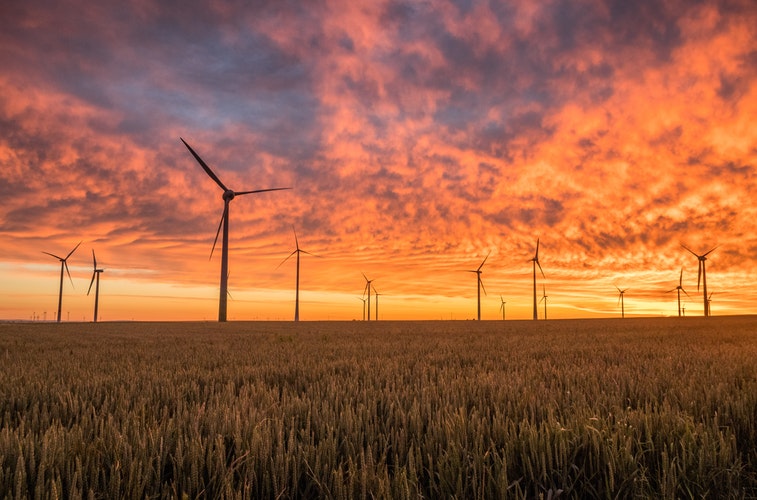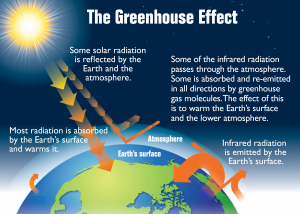
Lets talk sustainability
The urging trend everyone is talking about, sustainability is big in every aspect of life nowadays and its importance is alarming. Companies, brands, institutions, individuals are all involved and are taking action in order to overcome the modern world problem and preserve as much of the nature as possible. Sustainability is not just an environmental issue, but also an economical, health and social one. Universities across the globe are promoting sustainable products and ways in which, even if you are on a budget, you can contribute to a healthier environment. Here, I am going to give you a couple of ideas and draw importance on why you should be trying to incorporate sustainable practices as well as make you aware of how an individual contributes to an environment every day.
- Recycling
Recycling is a simple concept of reducing waste and preventing perfectly reusable items from being carelessly handled. By recycling we help reduce energy usage, raw material usage and water and air pollution. All kind of materials can be recycled including glass, paper, metal, textile, electronics and plastics. You may all well know what recycling entails, however, the practice of recycling is still not nearly as widespread as it should be. People get lazy, think that their recycling efforts are not going to make any difference or that by not taking action they are not contributing to much damage, which is a complete misconception. An average person produces around 2kg of waste per day which amounts to 730kg yearly. This number doesn’t include the industrial and other types of waste. Now you might think where does 730kg of waste made by only ONE individual go? Well, into nature, oceans, forests, soil, atmosphere, all the places where waste should not be found but rather kept away from. Everyone has a choice of how much and which items they are willing to recycle, but by recycling weekly paper and plastic waste, an individual can decrease annual waste by half and save as much energy. In Groningen, there are multiple options on how to recycle, either by sorting out trash in specified containers, returning plastic and glass bottles to supermarkets for a small profit or for greater amounts and industrial waste there is a recycling company Steenhuis worth contacting. Recycling is also not only about the waste itself but about preventing its amount in the first place, which includes using reusable bottles, bags, cutlery, mugs and other everyday items as well as buying products made from recycled material. The effort is minimal for the impact which is huge, and unless you really do not care about the planet, there is no excuse not to contribute.
- Food waste
Food waste is a topic people are the least aware of in my opinion. Supermarkets want only perfect looking vegetables and fruits, people keep throwing away perfectly edible and just as delicious left-overs and restaurants, bakeries and such are discarding all the freshly made items which have not been sold instead of donating them or making smaller amounts of things which are not as popular or as profitable. Food industry alone pollutes and is a massive influence on why the environment is the way it is. It amounts to 27% of annual wastes and 8% of it contributes to greenhouse gas emissions and the number is rising. In order to prevent food from being unused and becoming an excess you should always buy it with thought, serve just enough and always try use what’s left! Student dorms tend to be the worst places when it comes to food waste, as cabinets are usually filled with food which doesn’t end up being eaten and eventually goes bad. Instead, buying less and smart, cooking more regularly and meal prepping can not only reduce waste but fair well serve the student budget as it saves money while improving the nutritious quality of meals made.
- Biking
Biking in the Netherlands is the most common and easiest way to move around while getting an exercise. Apart from all the health benefits and convenience, it is also the most sustainable way of living and treating the environment. Bikes take up zero energy, well apart from our own, do not need any gas or oil, do not pollute and are almost completely recyclable once they have served their time. Use the opportunity while living here, to engage in this perfect sustainable lifestyle and reduce pollution with the smallest effort.
- Diet
I am not trying to promote veganism, vegetarianism or any other dietary way of living and eating; however, diet can be sustainable in so many ways. As I have mentioned before, food industry is one of the biggest polluters and that has to do a lot with how the animals and plants are treated. You can have a perfectly balanced diet by introducing more sustainable ingredients like local and foods in season, long-lasting grains, having your own herb plants, introducing meatless Mondays and supporting brands which produce organic foods. Red meats and dairy use up the largest amount of water and energy for their production and the livestock sector generates around 18% of greenhouse gas emissions. As it is not in everyone’s interest to turn to an alternative way of eating, meatless Mondays might be a good start and an even better contribution.
- Facts and tips
These are some of the facts which really put things into perspective and will hopefully make you think about sustainability more.
- One ton of 100 percent recycled paper saves the equivalent of 4100 kWh of energy, 7000 gallons of water(26500l), 60 pounds of air emissions and 3 cubic yards of landfill space.
- Less than 3% of world’s water is drinkable, of which 2.5% is frozen in Arctic, Antarctica and glaciers.
- One recycled bottle saves enough energy to run a 100-watt bulb for 4 hours and causes 20% less air pollution and 50% less water pollution than does making a new bottle.
- Recycling one 330ml aluminum can saves energy to power a TV for 3h.
- Around 16000l of water is used to make 1kg of beef.
- It takes 500-1000 years for plastic to degrade.
- When using plastic try sticking to ones that have type 1 or 2 on the plastic type sign as they are the most commonly recycled ones.
- One million sea birds and 100000 marine mammals are killed every year from plastics in oceans.
- In the North Pacific Ocean there is 6 times more plastic than sea life.
- 97% of plastics ever made still exists in some form or shape.
- As there is no color standard for recycling bins, make sure to know which color means which material in your city as mixing recyclable material leads to lower quality of recycled products and more damage in the process.
- Using font Century Gothic saves up to 30% of ink when printing.
- Useful terminology
– Greenhouse gas emissions – emissions of any gases into the earth’s atmosphere, like carbon dioxide or methane.
– Greenhouse effect – process by which radiation from planet’s atmosphere warms the Earth’s surface to a temperature higher what it would be without the atmosphere. The more gases in the atmosphere the stronger the effect becomes and thus creates global warming.
– Landfills – sites for disposal of waste by burial which unless stabilized lead to contamination.
– Waste management – the activities required to manage waste from inception to final disposal.
This post is meant to educate, promote awareness, state facts and encourage everyone to take part in living more sustainably. I hope I have cleared up misconceptions and put into perspective issues an everyday eco-friendly practices could combat. We should take care of what was given to us, so the future generations have something left of this beautiful planet. Stay green!
Written by Elena – PR Committee






